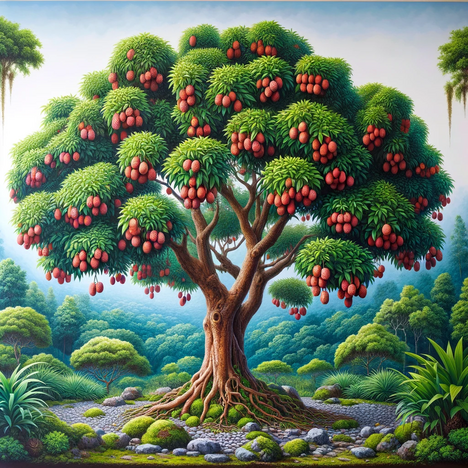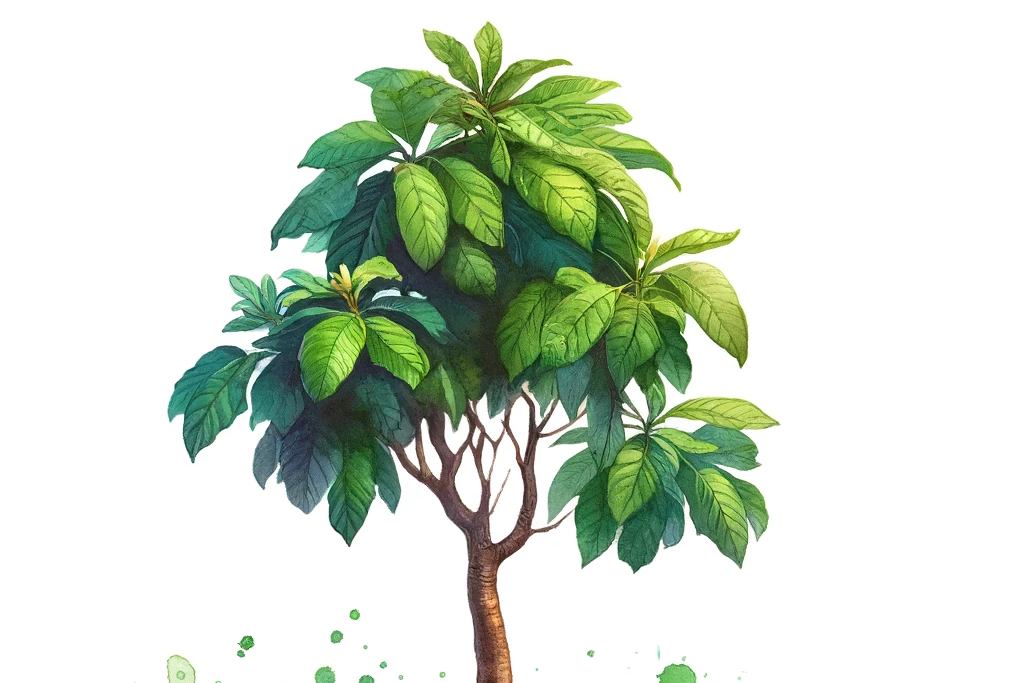Lychee tree

The lychee tree, known for its sweet and aromatic fruit, is a popular delicacy in many parts of the world. But while humans can enjoy the unique flavors of the lychee, the question is whether this tree and its components are a safe option for our dogs. In this article, we take a close look at the lychee tree, its various components and their effects on dogs to understand whether or not they pose a risk.
What is the lychee tree?
The lychee tree (Litchi chinensis) belongs to the Sapindaceae family and is native to the tropical and subtropical regions of Asia. The tree is best known for its lychee fruit, which has a hard, reddish skin and sweet, translucent flesh. In addition to the fruit, the components of the lychee tree also include leaves, flowers and seeds.
Components of the lychee tree and their effects on dogs
Lychee fruit
While the pulp of the lychee is not toxic to dogs in moderate amounts, the hard skin and seeds should be avoided. Due to its texture, the peel can pose a choking risk or mechanically block the digestive tract. The seed contains substances that can be toxic to dogs and should therefore not be consumed.
Leaves and flowers
There are no specific studies that prove the toxicity of lychee tree leaves or flowers in dogs. However, caution is generally advised as plants and trees may contain unknown toxins that can cause digestive upset or other health problems in dogs.
Seeds
Lychee seeds contain amygdalin, a substance that can be converted into cyanide. Eating lychee seeds can therefore lead to symptoms of poisoning such as respiratory distress, lethargy and, in severe cases, seizures or death. It is absolutely essential that dogs do not have access to the seeds.
Precautions and recommendations
When feeding lychee pulp to dogs, it is important to remove the skin and seeds and only offer the pulp in small quantities. It should be noted that the pulp also contains sugar, which can lead to indigestion or a worsening of existing health problems such as diabetes if consumed in excess.
While the pulp of the lychee in small quantities and without the skin and seeds is not poisonous to dogs, the other components of the lychee tree pose potential risks. The seeds are particularly dangerous due to their amygdalin content and should be strictly avoided. As with all foods that are not part of a dog's regular diet, caution should be exercised when feeding lychee.
If you notice any signs of hypersensitivity or poisoning in your dog, you should see your vet immediately. We are not a substitute for a vet, but we try to be as accurate as possible. Every dog reacts differently and we recommend you get a second opinion or consult your vet if in doubt.
Stay healthy and take good care of your four-legged friend!😊
Similar to Lychee tree
The mango, known for its sweet taste and juicy texture, is a popular fruit with many people around the world. But what about our four-legged friends? Before we dive into the specific components of...
When it comes to feeding our dogs, we are always on the lookout for healthy and nutritious options. Avocado, rich in vitamins, minerals and healthy fats, may seem like an attractive choice at first...
The real guava (Psidium guajava) is a tropical fruit known for its high nutrient content and unique flavor. It originally comes from Central and South America, but is now grown in many tropical and...
The papaya tree is a symbol of tropical sweetness and is often praised for its culinary and medicinal properties. While humans have been enjoying the benefits of this plant for centuries, the question...



